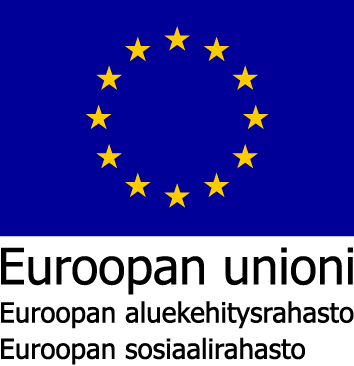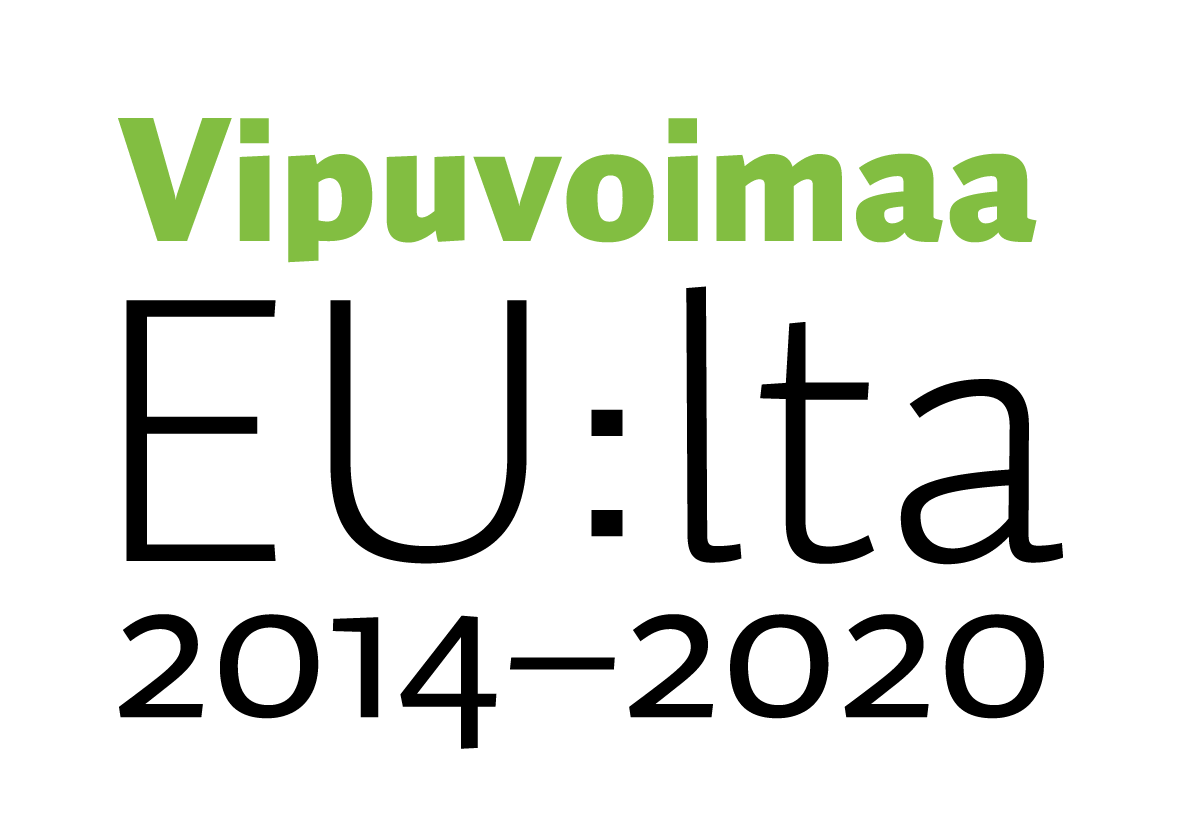

 |
 |
Hankekoodi: S22144
Hankkeen nimi: Itä-Suomen kansainvälisen biotalousosaamisen kehittäminen työelämälähtöisen jatkuvan oppimisen keinoin
Toimintalinja: 4. Koulutus, ammattitaito ja elinikäinen oppiminen
Erityistavoite: 9.2. Kasvu- ja rakennemuutosalojen koulutuksen tarjonnan ja laadun parantaminen
Suunnitelman mukainen toteutusaika: Alkaa 1.8.2020 ja päättyy 31.12.2022
Toiminnan tila: Toiminta päättynyt
Vastuuviranomainen: Etelä-Savon elinkeino-, liikenne- ja ympäristökeskus
Hakijan virallinen nimi: Itä-Suomen yliopisto
Organisaatiotyyppi: Yliopisto
Y-tunnus: 2285733-9
Jakeluosoite: PL 111
Puhelinnumero: 0294 45 1111
Postinumero: 80101
Postitoimipaikka: Joensuu
Hankkeen yhteyshenkilön nimi: Jukka Tikkanen
Yhteyshenkilön asema hakijaorganisaatiossa: Tutkimusjohtaja
Yhteyshenkilön sähköpostisoite: jukka.tikkanen(at)uef.fi
Yhteyshenkilön puhelinnumero: 0504058236
Hakijoiden lukumäärä tai tuen siirto -menettely:
Hankkeen tavoitteena on parantaa kasvavalla biotalousalalla jatkuvan oppimisen koulutustarjontaa sekä kehittää koulutuksen työelämälähtöisyyttä sekä pedagogisesti että substanssin osalta. Keskeisimpinä tavoitteina ovat: Biotalouden erikoistumiskoulutuksen ja siitä johdannaisten jatkuvan koulutuksen muotojen kehittäminen alueen työelämän tarpeisiin; Biotalouden kehittäjäverkoston (Bioneerit) luominen ja fasilitointi ja sen kytkeminen olemassa oleviin klustereihin sekä biotalouden koulutukseen sekä; koulutuksen ja yritysyhteistyön kansainvälisyyden kasvattaminen biotalouden ja jatkuvan oppimisen koulutusvientikokeiluiden kautta.
Hankkeen aikana mm. otetaan käyttöön biotalouden erikoistumiskoulutuksen uusi opetussuunnitelma, kerätään siitä palautetta ja suunnittellaan ja pilotoidaan pienempiä opetuskokonaisuuksia, jotta opintoja voidaan paremmin räätälöidä ja jotta valmius täsmäkoulutusten tarjoamiseen korkeakoulujen yhteistyönä paranee. Lisäksi hankkeessa kehitetään toimintamalli mentoriverkoston ja haastepankin rakentamiseksi sekä selvitetään edellytykset ja reunaehdot toiminnan jatkumiselle. Tähän liittyen järjestetään esim. hackaton/projektibuusteri- tai round table -tilaisuuksia ideoiden sparraamiseksi ja kehittämiseksi ja kehitetään sitouttamis- ja palkitsemismalli mm. mentoroinnin osalta. Kansainvälisen vaikuttavuuden rakentaminen tapahtuu pääasiassa koulutusvientikokeiluiden avulla ja erilaisia yhteistyömuotoja pilotoidaan yhdessä tai useammassa kohteessa (Etelä-Amerikka, Eurooppa, Aasia, Afrikka, Pohjoismaat). Biotalouden erikoistumiskoulutus kytkeytyy läheisesti yritysten kanssa tehtävään TKI-työhön ja ekosysteemien aluekehittämisen vahvuuksiin Itä-Suomessa. Pohjois-Savossa strategiatyössä on Biotalous valittu yhdeksi kahdeksasta TKI-kehittämisympäristöstä, joihin nyt kohdennetaan resursseja. Vastaavasti Pohjois-Karjalassa varsinkin metsäbiotalous on vahva osaamiskeskittymä. Osaltaan tämä koulutus vahvistaa alueellisten ja kansallisten biotalousalan klusterien muodostumista ja vahvistumista, mikä edesauttaa kytkeytymistä mm. EU:n Horizon-hankkeisiin.
Hankkeen tuloksena UEF:n, Karelian ja Savonian yhdessä toteuttama Biotalouden erikoistumiskoulutus kehittyy ja vastaa yhä paremmin työelämän tarpeisiin. Myös itäsuomalaisen biotalouden korkeakoulu- ja yritysyhteistyön brändi kehittyy ja kattaa jatkuvan oppimisen tarjontaa erikoistumiskoulutusta laajemmin. Mentorointi, jota on käytetty pedagogisena työkaluna biotalouden erikoistumiskoulutuksessa, laajenee alueen biotalousverkostoa vahvistavaksi toimintamalliksi ja toimii mm. korkeakoulujen ja yritysten välisenä tiedonsiirtotapana. Lisäksi koulutusvientikokeiluiden pohjalta löydetään biotalouden koulutusvientituotteista houkuttelevimmat sekä laaditaan toimintamalli palautteen keräämiseksi ja koulutusviennin kehittämiseksi.
Biotalouden erikoistumiskoulutuksen ja siten hankkeen välittömänä kohderyhmänä ovat henkilöt, jotka toimivat jo nyt tai tulevat tulevaisuudessa toimimaan biotalouden alalla (ml. työttömät ja työttömyysuhan alla olevat). He voivat työskennellä yrityksissä; yrittäjinä; neuvonta-, tutkimus tai edistämistehtävissä; tai ammatillisina opettajina. He voivat olla biotaloutta edistäviä julkisia toimijoita, yrittäjiksi aikovia tai biotuotannossa ja sen raaka-ainehankinnassa toimivia henkilöitä. Tässä hankkeessa pyritään osallistamaan toimijoita erityisesti biotalouden reunamilta, eli toimialoilta, jotka eivät välttämättä miellä toimintaansa biotaloudeksi. Tällaisia ovat mm. monet ohjelmistoalan yritykset, tällä hetkellä fossiilisia raaka-aineita käyttävät yritykset, kiertotalousyritykset, koneenrakennusosaajat, luontomatkailuyritykset jne. Biotalouden erikoistumiskoulutuksen opiskelijat kuuluvat hankkeen varsinaiseen kohderyhmään.
Biotalouden erikoistumiskoulutukseen hakeutuvien lisäksi tämän hankkeen kohderyhmää on muu yritysten henkilöstö tai työttömät, jotka hyötyvät eritavoin räätälöidyistä koulutuksista tai lyhyistä intensiivikoulutuksista. Tämän hankkeen toimenpiteet edesauttavat mm. korkeakouluopintonsa vasta päättäneitä, joista osa voi olla työttömyysuhan alla valmistuttuaan; hankkeessa kehitettävä koulutus tukee perustutkintokoulutuksen jälkeen osaamisen työelämärelevanssin kasvattamista. Tämä kohderyhmä tavoitetaan luontevasti korkeakoulujen omien verkostojen kautta.
Hankkeen välilliset hyödynsaajat ovat biotalousalan tutkintotavoitteiset korkeakoulujen opiskelijat (opetuksen kehittyminen, yritysyhteistyön vahvistaminen) sekä organisaatiot, joiden työntekijä on käynyt erikoistumiskoulutuksen. Työntekijöiden osaamistason ja korkeakouluyhteistyön tiivistymisen ja koulutuksessa suoritettavien kehittämistehtävien myötä hankkeen kohderyhmänä ovat biotalousalan yritykset Itä-Suomessa. Hanke tukee uuden yritystoiminnan syntymistä biotalousalalle ja sitä sivuaville aloille. Välillisesti hanke tukee ja tuo näkyväksi myös jatkokoulutuspolkuja, joita korkeakoulut tarjoavat, erityisesti tohtorikoulutus ja YAMK-tutkinnot.
Myönnetty EU- ja valtion rahoitus: 567 815
Toteutunut EU- ja valtion rahoitus: 526 819
Suunniteltu julkinen rahoitus yhteensä: 655 394
Toteutunut julkinen rahoitus yhteensä: 646 648
Maakunnat: Pohjois-Savo, Pohjois-Karjala
Seutukunnat: Koillis-Savon, Kuopion, Varkauden, Keski-Karjalan, Joensuun, Pielisen Karjalan, Sisä-Savon, Ylä-Savon
Kunnat: Tervo, Lieksa, Sonkajärvi, Keitele, Outokumpu, Tohmajärvi, Nurmes, Siilinjärvi, Polvijärvi, Rääkkylä, Tuusniemi, Suonenjoki, Lapinlahti, Liperi, Kuopio, Vesanto, Kiuruvesi, Rautalampi, Kaavi, Joensuu, Rautavaara, Kontiolahti, Kitee, Juuka, Vieremä, Pielavesi, Varkaus, Ilomantsi, Leppävirta, Iisalmi
Jakeluosoite:
Postinumero:
Postitoimipaikka:
Suunniteltu: 50
Toteutunut seurantatietojen mukaan: 54
Suunniteltu: 160
| Välitön | Välillinen | |
| Ekologinen kestävyys | ||
| Luonnonvarojen käytön kestävyys | 0 | 9 |
| Koulutuksessa avataan mitä luonnonvarojen käytön kestävyys tarkoittaa ja miten sitä toteutetaan käytännössä | ||
| Ilmastonmuutoksen aiheuttamien riskien vähentäminen | 0 | 9 |
| Koulutuksessa avataan biotalouden suhdetta ilmastonmuutokseen | ||
| Kasvillisuus, eliöt ja luonnon monimuotoisuus | 0 | 8 |
| Koulutuksessa avataan biotalouden suhdetta mm. luonnonmonimuotoisuuteen | ||
| Pinta- ja pohjavedet, maaperä sekä ilma (ja kasvihuonekaasujen väheneminen) | 0 | 9 |
| Koulutuksessa avataan biotalouden suhdetta mm. vesiin, maaperään ja ilmaan. | ||
| Natura 2000 -ohjelman kohteet | 0 | 7 |
| Koulutuksessa avataan biotalouden suhdetta luontoarvoihin. | ||
| Taloudellinen kestävyys | ||
| Materiaalit ja jätteet | 0 | 9 |
| Koulutuksessa avataan biotalouden suhdetta mm. materiaaleihin ja kiertotalouteen. | ||
| Uusiutuvien energialähteiden käyttö | 0 | 9 |
| Koulutuksessa avataan biotalouden suhdetta mm. uusiutuviin energialähteisiin | ||
| Paikallisen elinkeinorakenteen kestävä kehittäminen | 8 | 9 |
| Koulutuksen aikana tehtävä kehittämistyö liittyy suoraan yrityksen toimintaan ja siten toimii toiminnan ja kokonaisuutena elinkeinorakenteen kehittäjänä | ||
| Aineettomien tuotteiden ja palvelujen kehittäminen | 8 | 9 |
| Monet koulutuksen aikana tehtävät kehittämistyöt liittyvät aineettomien tuotteiden ja palvelujen kehittämiseen. | ||
| Liikkuminen ja logistiikka | 8 | 9 |
| Monet koulutuksen aikana tehtävät kehittämistyöt liittyvät liikenteeseen ja logistiikkaan. | ||
| Sosiaalinen ja kulttuurinen kestävyys sekä yhdenvertaisuus | ||
| Hyvinvoinnin edistäminen | 7 | 0 |
| Työssä viihtyminen lisääntyy koulutuksen myötä, kun oma osaaminen ja tietämys lisääntyvät ja koulutus avaa uusia näkökulmia sekä työssä että yhteiskunnassa ylipäänsä. | ||
| Tasa-arvon edistäminen | 4 | 0 |
| Miehillä ja naisilla yhtäläiset mahdollisuudet osallistua koulutukseen ja siten parantaa asemaansa työelämässä | ||
| Yhteiskunnallinen ja kulttuurinen yhdenvertaisuus | 0 | 7 |
| Osaamistason parantaminen toivotaan parantavan työmarkkina asemaa | ||
| Kulttuuriympäristö | 0 | 7 |
| Osaamisen lisääntymisellä vaikutus alueiden suunnitteluun (esim. virkistyskäyttö, luontomatkailu) | ||
| Ympäristöosaaminen | 8 | 0 |
| Koulutuksen sisällöllä on suora vaikutus ympäristöosaamiseen | ||
Hankkeen tavoitteena oli vahvistaa kasvavalla biotalousalalla jatkuvan oppimisen koulutustarjontaa sekä kehittää koulutuksen työelämälähtöisyyttä sekä pedagogisesti että substanssin osalta. Keskeisimpinä tavoitteina olivat: Biotalouden erikoistumiskoulutuksen (bioerko) ja siitä johdannaisten jatkuvan oppimisen muotojen kehittäminen alueen työelämän tarpeisiin; Biotalousosaamisverkoston luominen ja kytkeminen olemassa oleviin klustereihin sekä biotalouden koulutukseen sekä; koulutuksen ja yritysyhteistyön kansainvälisyyden kasvattaminen biotalouden ja jatkuvan oppimisen koulutusvientikokeiluiden kautta.
Biotalouden erikoistumiskoulutuksen uuden opetussuunnitelman mukaiseen koulutukseen osallistui 29 opiskelijaa biotalouden eri osa-alueilta, joista hankkeen aikana valmistui 9. Bioerkon opiskelijapalautteessa korostui verkostojen luomisen merkitys, ja kiitosta on saanut koulutuksen hyvä yhteishenki. Koulutuksen järjestäjinä olemme onnistuneet tiivistämään yhteistyötä korkeakoulujen välillä ja oppineet toisiltamme hyviä käytänteitä. Hankkeen aikana pilotoimme pienempiä koulutuskokonaisuuksia, joihin osallistui yhteensä 237 henkilöä. Pilotoimme mm. ”Biotalouden liiketoiminnan palvelumuotoilu” -koulutuksen, koulutuswebinaarisarjan aiheesta ”Metsäsuunnittelu nyt ja tulevaisuudessa” sekä opintojakson ”Energiamurros ja biotalous”. Bioerkon opintokokonaisuudesta on jatkossa opiskeltavissa esim. Itä-Suomen yliopiston avoimessa yliopistossa ”Metsäbiotalouden ennakointi ja innovaatiot” -opintojakso sekä Karelia-amk:n avoimessa opintotarjonnassa ”Energiamurros ja biotalous” -opintojakso. Korkeakoulujen avoin väylä sekä täydennyskoulutus tarjoavat erittäin monipuolisia kokonaisuuksia osaamisen kehittämiseen.
Biotalouden osaamisverkoston luonteviksi toiminta-alustoiksi on tunnistettu olemassa olevat ekosysteemit: Pohjois-Karjalassa GreenHub ja Pohjois-Savossa Pohjois-Savon Bio- ja kiertotalouden ekosysteemi. Hankkeen aikana järjestettiin 12 kertaa virtuaaliset aamukahvit biotalouden eri teemoista tavoittaen yli 280 henkilöä. Virtuaaliaamukahvit koettiin hyväksi tavaksi tavoittaa biotalouden toimijoita sekä välittää laaja-alaisesti tietoa biotaloudesta. Verkostoitumisen näkökulmasta järjestettiin myös kolme koulutusmatkaa, joiden teemoina olivat biohiilen tuotanto, sen myyntiorganisaatiot sekä kehittämisympäristöt ja biokaasun lähituotanto maatilakokoluokassa.
Hankkeen aikana vahvistimme yhteistyötä Uruguayhin ja Chileen. Vierailimme molemmissa maissa perehtyäksemme tarkemmin paikalliseen biotalouteen. Yhteistyötahojen kanssa järjestimme webinaareja ja lisäksi verkkokurssin. Kansainvälisen yhteistyön tavoitteena on luoda mahdollisuuksia mm. opiskelija- ja henkilökuntavaihtoon, yhteisten koulutuskokonaisuuksien järjestämiseen, TKI-yhteistyöhön sekä työelämäyhteistyön kautta edistää biotalousalan yritysten kansainvälistymistä.
Join-bioerko -hankkeen avulla on edistetty Itä-Suomen näkyvyyttä biotalouden osaamiskeskittymänä, vahvistettu biotalousalan yhteistyötä alueella sekä luotu mahdollisuuksia monenlaiseen koulutus- ja TKI-yhteistyöhön. Tämän lisäksi olemme kouluttaneet useita biotalouden parissa ja sen rajapinnoilla toimivia henkilöitä ympäri Suomen sekä kansainvälisesti.